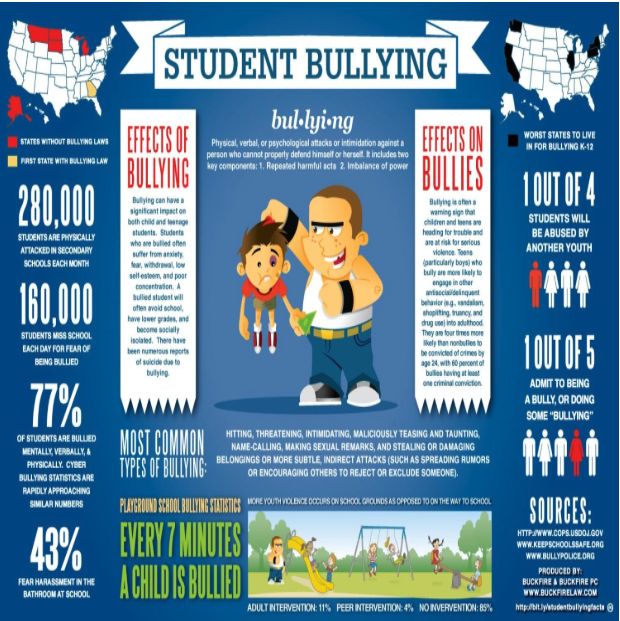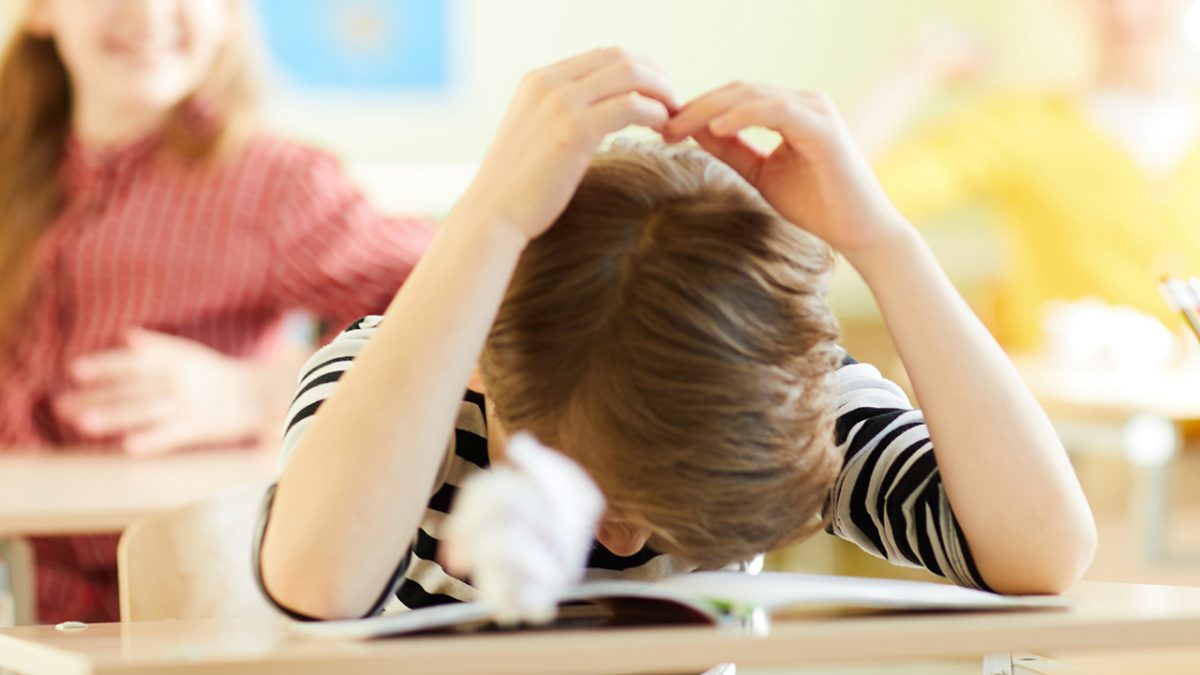
The price of shame – Monica Lewinsky
25 de outubro de 2019
How to get your ideas spread – Seth Godin
1 de novembro de 2019Bullying at schools is a serious problem. Children who get bullied have problems later in life. They may have lower grades, drop out of school, or even develop drug problems.
New research gives clues about bullying. Children who are picked on often lack social skills. They don’t understand when other children feel annoyed or angry, for example. They don’t know social rules and social skills as well as their peers. They may not know how to communicate well.
Of course, all people want to have friends and be liked. Unfortunately, bullying creates a terrible cycle. Popular children have many friends, so they have many chances to practice social skills. Less popular children have fewer chances to perfect social skills, and so become the targets of bullying more frequently.
1. TRUE / FALSE: Say whether these sentences are true (T) or false (F):
| a. | Bullying is not so serious as we may think. | T / F |
| b. | Children who get bullied suffer bad consequences in the future. | T / F |
| c. | Children who get bullied don’t have personal skills. | T / F |
| d. | Children get bullied because they usually communicate well. | T / F |
| e. | All people want to be loved by their friends. | T / F |
| f. | Popular children have an unhealthy social life. | T / F |
| g. | Less popular kids become targets of bullying because they lack social skills | T / F |

BULLYING NAS ESCOLAS
O bullying nas escolas é um problema sério. As crianças que ficam intimidadas têm problemas mais tarde na vida. Eles podem ter notas mais baixas, abandonar a escola ou mesmo desenvolver problemas com drogas.
Nova pesquisa fornece dicas sobre bullying. Crianças que são alvos de bullying geralmente não têm habilidades sociais. Eles não entendem quando outras crianças se sentem chateadas ou irritadas, por exemplo. Eles não conhecem as regras e habilidades sociais, bem como seus pares. Eles não sabem se comunicar bem com outras crianças.
É claro que todas as pessoas querem ter amigos e serem amadas. Infelizmente, o bullying cria um ciclo terrível. Crianças populares têm muitos amigos, então eles têm muitas chances de utilizar suas habilidades sociais. Crianças menos populares têm menos chances de aprimorar suas habilidades sociais e, assim, tornam-se alvo de bullying com mais frequência.
1. VERDADEIRO / FALSO: Diga se essas frases são verdadeiras (V) ou falsas (F):
a. O bullying não é tão sério quanto pensamos. V/F
b. As crianças que são intimidadas sofrem consequências ruins no futuro. V/F
c. Crianças que sofrem bullying não têm habilidades pessoais. V/F
d. As crianças sofrem bullying porque geralmente se comunicam bem. V/F
e. Todas as pessoas querem ser amadas por seus amigos. V/F
f. As crianças populares não têm uma vida social saudável. V/F
g. Crianças menos populares tornam-se alvo de bullying porque elas. V/F não têm habilidades sociais.





